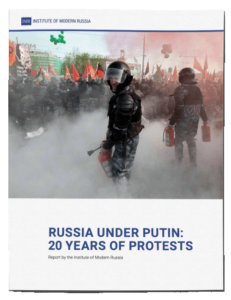 The unrest in Khabarovsk amounts to a “revolution of dignity” created not by civil society, but by Russia’s authorities, says a prominent analyst.
The unrest in Khabarovsk amounts to a “revolution of dignity” created not by civil society, but by Russia’s authorities, says a prominent analyst.
The current protests have sparked recent small rallies in support of Khabarovsk in some other cities, including Moscow and Saint Petersburg, easily dispersed by riot police. But they send an alarming message to the Kremlin at a challenging time for Putin, The Post reports:
The economy is battered by falling oil prices and the pandemic, and there is no clear path for authorities to re-energize Putin’s image. The Khabarovsk crisis also reveals some of the cracks in Russia’s tightly managed authoritarian state, where co-opted opposition parties buy into the system by providing a veneer of pluralistic politics but generally support the Kremlin……
Andrei Kolesnikov of the Carnegie Moscow Center wrote that Putin was running out of means to regain popularity. The Khabarovsk protests revealed Russian authorities’ inability to deal effectively with crises such as the economic consequences of the pandemic, he wrote, while ordinary people felt unhappy about the authorities taking away their choices — in this case their choice of governor.
“This revolution of dignity exists like an underground fire that will spread above ground at any opportunity,” he wrote, “and those opportunities are created not by civil society, but by the authorities themselves.”







